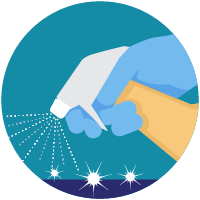Symptoms
Reported illnesses have ranged from mild symptoms to severe illness and death for confirmed coronavirus disease 2019 (COVID-19) cases. The following symptoms may appear 2-14 days after exposure (based on previous MERS-CoV virus incubation periods). Source- CDC



Call your doctor if you develop symptoms and have been in close contact with a person known to have COVID-19, or have recently traveled from an area with widespread/ongoing community spread of COVID-19.
What You Can Do to Prevent Illness
There is currently no vaccine to prevent coronavirus disease 2019 (COVID-19). The best way to prevent illness is to avoid being exposed to this virus. The virus is thought to spread mainly from person-to-person:
- Between people who are in close contact with one another (within about 6 feet).
- Through respiratory droplets produced when an infected person coughs or sneezes. These droplets can land in the mouths or noses of people who are nearby or possibly be inhaled into the lungs.
It may be possible that a person can get COVID-19 by touching a surface or object that has the virus on it and then touching their own mouth, nose, or possibly their eyes, but this is not thought to be the main way the virus spreads.
Older adults and people who have severe underlying chronic medical conditions like heart or lung disease or diabetes seem to be at higher risk for developing more serious complications from COVID-19 illness.
Please consult with your health care provider about additional steps you may be able to take to protect yourself.
Take Steps to Protect Yourself and Others
Clean Your Hands Often
- Wash your hands often with soap and water for at least 20 seconds especially after you have been in a public place, or after blowing your nose, coughing, or sneezing. If soap and water are not readily available, use a hand sanitizer that contains at least 60% alcohol.
- Avoid touching your eyes, nose, and mouth with unwashed hands.
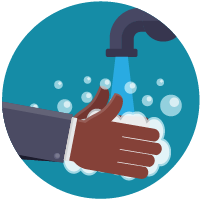
Clean Your Hands Often
- Avoid close contact with people who are sick
- Put distance between yourself and other people if COVID-19 is spreading in your community. This is especially important for people who are at higher risk of getting very sick.
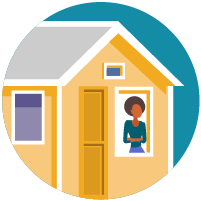
Stay home if you're sick
- Stay home if you are sick, except to get medical care. Learn what to do if you are sick.
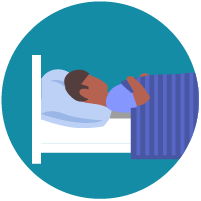
Cover Coughs/sneezes
- Cover your mouth and nose with a tissue when you cough or sneeze or use the inside of your elbow.
- Throw used tissues in the trash.
- Immediately wash your hands with soap and water for at least 20 seconds. If soap and water are not readily available, clean your hands with a hand sanitizer that contains at least 60% alcohol.
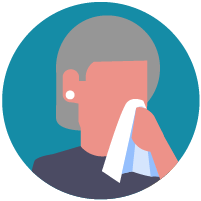
Know How It Spreads
- There is currently no vaccine to prevent coronavirus disease 2019 (COVID-19).
- The best way to prevent illness is to avoid being exposed to this virus.
- The virus is thought to spread mainly from person-to-person. It can spread between people who are in close contact with one another (within about 6 feet) or through respiratory droplets produced when an infected person coughs or sneezes.
- These droplets can land in the mouths or noses of people who are nearby or possibly be inhaled into the lungs.
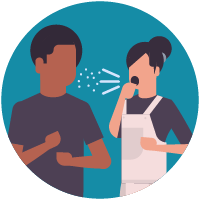
Clean And Disinfect
- Clean AND disinfect frequently touched surfaces daily. This includes tables, doorknobs, light switches, countertops, handles, desks, phones, keyboards, toilets, faucets, and sinks.
- If surfaces are dirty, clean them: Use detergent or soap and water prior to disinfection.
- The virus is thought to spread mainly from person-to-person. It can spread between people who are in close contact with one another (within about 6 feet) or through respiratory droplets produced when an infected person coughs or sneezes.
- These droplets can land in the mouths or noses of people who are nearby or possibly be inhaled into the lungs.
